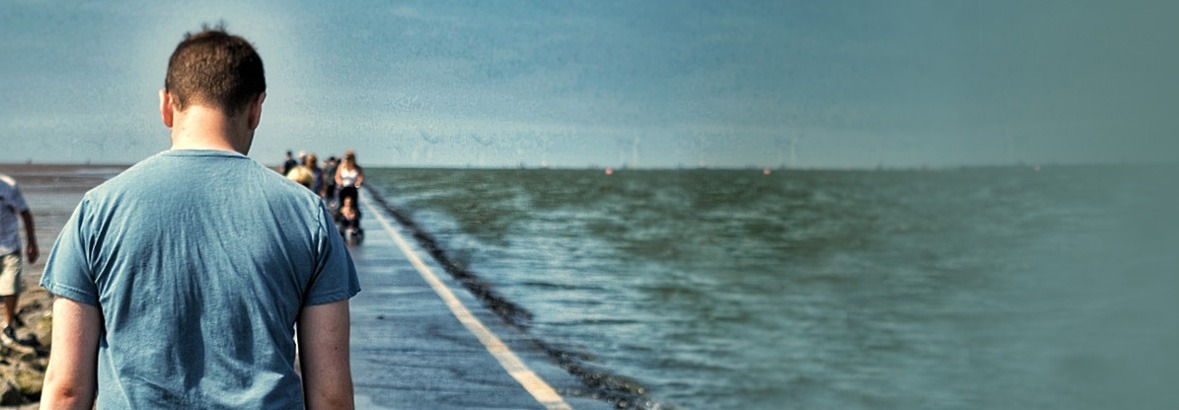
Autism Together’s advertisement in North West screens from 8 March
A cinema advertising campaign featuring the true story of young autistic man, Austin, and his mum, Louise, will appear in North-West cinemas from today (8 March).
The advertisement, designed by Merseyside-based charity Autism Together to convey the desperation that some parents with autistic children can feel, includes a re-created scene from Austin’s life which alludes to self-harm.
One in every hundred people in the UK is thought to be on the autism spectrum and whilst the majority lead good lives with the condition, Autism Together cares for people with acute autism and challenging behaviour.
The charity hopes the ad campaign will draw attention to the lack of specialist autism care available across the North West and raise funds for its Future 50 appeal. The appeal is raising £2.5m to build a pioneering centre for people with autism in crisis.
The one-minute film shows Austin’s life going into meltdown as he grows from a young boy into an adolescent without receiving the professional care he needs.
Austin’s mother, Louise Latham, a former officer with the Metropolitan police who lives in Merseyside, said, “I’m a single parent and I got Austin’s diagnosis when he was four. The consultant said, ‘Your son has autism. I’m sorry,’ and showed me the door. I cried all the way home. After two weeks of mourning for my boy’s future, I realised that if I wasn’t strong for him, no-one else would be. Austin is now 20 and I have fought for him every single day since. It has been the greatest challenge of my life – everything has been against us.”
- Age 9, school bus escorts, rather than helping Austin, labelled him a ‘naughty child’ and later banned him.
- Age 14, the deputy of a special needs school refused to have him back, although the school was receiving money for his placement.
- With anxiety building, Austin began to self-harm – he’d tear his hair out – and became violent. He beat Louise. Hospital consultants refused to detain him under the mental health act and sent him back home.
- Eventually Austin was admitted to hospital as a ‘place of safety’ but it was a general ward near other children. He slept on a mattress, surrounded by support workers and security guards.
- Next, to (what Louise was led to believe was) a specialist children’s home, where he stopped eating, self-harmed and slept on a filthy mattress. Senior staff brushed off signs of oncoming psychosis. One night he ran away. He was found by police 17 miles away, in the pouring rain and wearing only light indoor clothes.
- Later, on an acute adolescent ward, Louise found him crying and screaming. The environment was busy and noisy – entirely unsuitable to someone with Austin’s condition.
- Austin then spent nearly two years in an assessment and treatment unit (ATU) for adults. As he was under 18, he was segregated. In an ATU, a ‘discharge plan’ should be created as an immediate priority. It wasn’t – for a whole year.
- When he reached 18, Louise scoured the whole of the UK for placements for Austin – many requests were turned down – until charity Autism Together created a place for him on its Raby site in Wirral.
- Autism Together specialises in the care of acute cases of autism, providing autism-specific buildings on a quiet, rural site. Austin arrived in February 2018 and has been living there calmly since. There have been no critical incidents, although staff are still helping him to manage his anxiety.
Latham said, “I want other parents with children on the spectrum to see this film and know they are not alone and that campaigners are fighting this fight. More than anything, I need to know that what Austin and I went through is not in vain.”
Robin Bush, CEO of Autism Together, said: “Whilst many, many people with autism lead fantastic lives, others are so severely affected that they need specialist help. But too often, their experience is just like Austin’s – a dreadful litany of inadequate care.
“By March 2019 the government’s Transforming Care policy* was supposed to have closed down at least half of the old-fashioned institutions in which people with acute autism often get stuck – sometimes for years.
“Our charity’s vision is for a new generation of autism centre, where people in crisis are helped by specialists and in wonderful autism-friendly environments. The idea is to help people – not hold them indefinitely – so they can return to warm and welcoming homes in the community.
“This is exactly the sort of service we want to build in Merseyside and we hope our film will encourage the public to donate to this vital cause.
“Just imagine how different Austin’s story could have been.”
